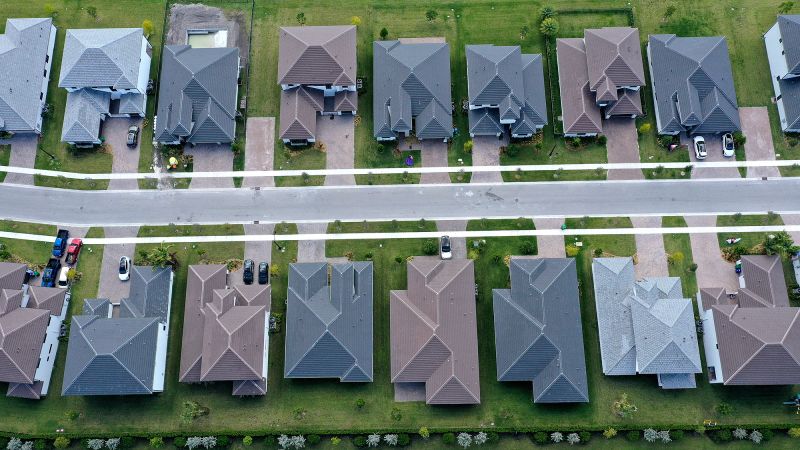Buying a family-sized home with three or more bedrooms used to be manageable for young people with children. But with home prices climbing faster than wages, mortgage rates still close to 23-year highs and a shortage of homes nationwide, many Millennials with kids can’t afford it. And Gen Z adults with kids? Even harder.
Meanwhile, Baby Boomers are staying in their larger homes for longer, preferring to age in place and stay active in a neighborhood that’s familiar to them. And even if they sold, where would they go? There is a shortage of smaller homes in those neighborhoods.
As a result, empty-nest Baby Boomers own 28% of large homes — and Milliennials with kids own just 14%, according to a Redfin analysis released Tuesday. Gen Z families own just 0.3% of homes with three bedrooms or more.



That was the entire point of mortgages. You’re paying interest, and could end up paying well over the original house value, but over a long enough time period, via inflation and property values increasing, you’re still making out ahead of renting. Depending on the mortgage interest rate, you could be better off not paying it off early.
For example, I refinanced my house at 2.6%. Afterwards I started paying extra principal payments. My mother the accountant told me to stop. The interest rate is lower than inflation, I’m better off using the money for other things or putting it into higher yield savings accounts instead of paying it off earlier than schedule.
That’s a fair point, if you’re among those who don’t wait the length of time for an entire generation to come of age and two thirds of your loan period to pass before you get to see lower interest rates. Between the late 70s and early 80s there was a steep rise in mortgage rates, but this quickly dropped off and returned to early 1970s rates. Rates stayed mostly constant from then until the 2000s when they began to drop off, reaching a near once-in-a-lifetime historic low just a few years ago.
Wages haven’t risen with inflation to allow others to reap the benefits of buying in and waiting for their property values to soar. And the topic in this particular thread isn’t renting vs buying. The original commenter stated that the article didn’t consider their parents’ 12% mortgage rate. This specific discussion is about whether holding onto a 12% loan for thirty years at a starting 1990 salary is equivalent to today’s rate with today’s prices at today’s salary—and it’s not.